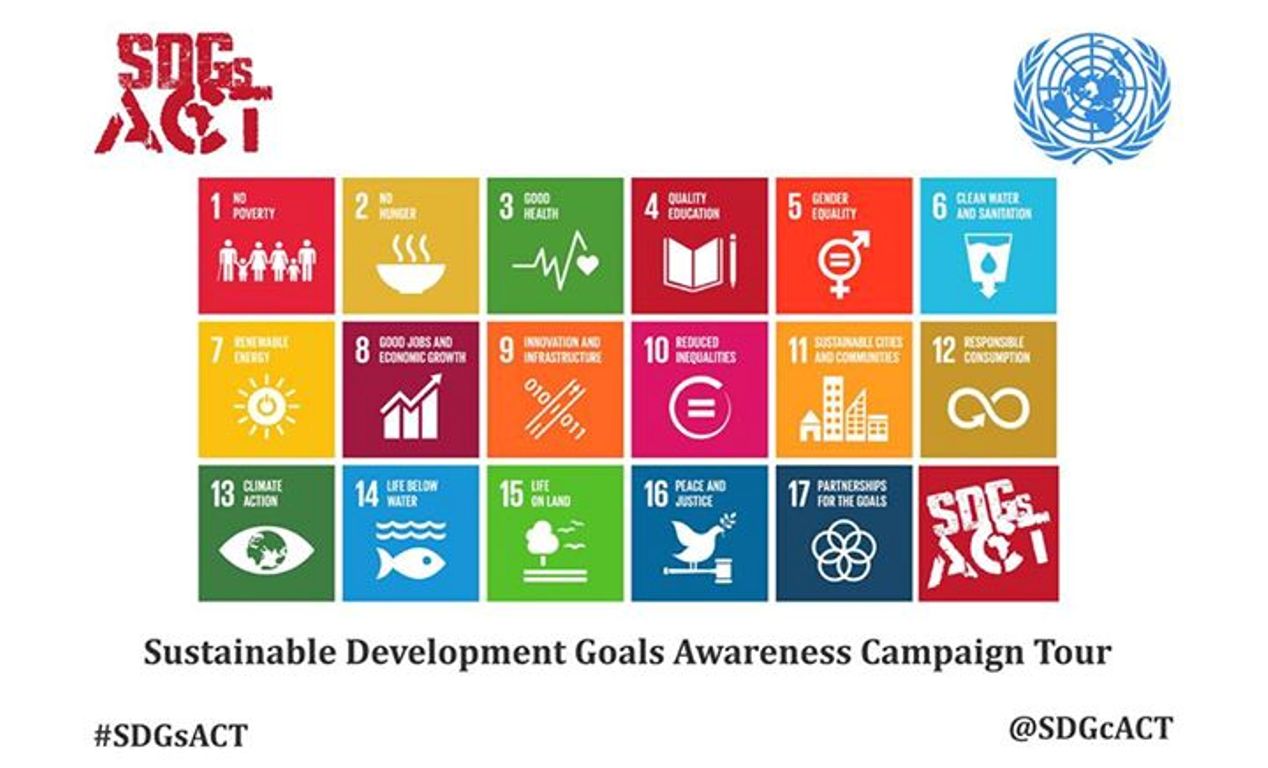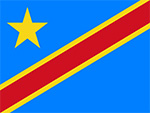SDGsACT
Description
SDGsACT will kick start January, 2016 in which a goal will be assigned to a month, that is SDGsACT will be focusing on a goal per month across Africa. 1. Identification of Vulnerable communities: One of the major pre planning meeting of every SDGsACT group is to identify vulnerable communities in their states/regions.2. Identification of SDG Projects: After knowing the vulnerable communities, the team will also identify SDG projects that can be executed to provide solution to the comunity needs.3. Project Planning: The team will meeting to plan on how to execute the identified project.4. Awareness tour: The team will embark on the awareness in such community, so as to be able to imprint SDGs into the heart of every comunity memebers.5. Project Execution: The team will carry out the agreed project to the community.6. I SUPPORT SDGs Endorsement: The team will encourage the youths and the community members to endorse SDGs in their community.
SDGsACT Activities are coordinated by each state/region coordinators through online and offline coordination.
<br />
<br>
SDGS & Targets
Goal 17
Strengthen the means of implementation and revitalize the Global Partnership for Sustainable Development
17.1
Strengthen domestic resource mobilization, including through international support to developing countries, to improve domestic capacity for tax and other revenue collection
17.1.1
17.1.2
17.2
Developed countries to implement fully their official development assistance commitments, including the commitment by many developed countries to achieve the target of 0.7 per cent of ODA/GNI to developing countries and 0.15 to 0.20 per cent of ODA/GNI to least developed countries; ODA providers are encouraged to consider setting a target to provide at least 0.20 per cent of ODA/GNI to least developed countries
17.2.1
17.3
Mobilize additional financial resources for developing countries from multiple sources
17.3.1
Additional financial resources mobilized for developing countries from multiple sources
17.3.2
17.4
Assist developing countries in attaining long-term debt sustainability through coordinated policies aimed at fostering debt financing, debt relief and debt restructuring, as appropriate, and address the external debt of highly indebted poor countries to reduce debt distress
17.4.1
17.5
Adopt and implement investment promotion regimes for least developed countries
17.5.1
Number of countries that adopt and implement investment promotion regimes for developing countries, including the least developed countries
17.6
Enhance North-South, South-South and triangular regional and international cooperation on and access to science, technology and innovation and enhance knowledge sharing on mutually agreed terms, including through improved coordination among existing mechanisms, in particular at the United Nations level, and through a global technology facilitation mechanism
17.6.1
Fixed broadband subscriptions per 100 inhabitants, by speed
17.7
Promote the development, transfer, dissemination and diffusion of environmentally sound technologies to developing countries on favourable terms, including on concessional and preferential terms, as mutually agreed
17.7.1
Total amount of funding for developing countries to promote the development, transfer, dissemination and diffusion of environmentally sound technologies
17.8
Fully operationalize the technology bank and science, technology and innovation capacity-building mechanism for least developed countries by 2017 and enhance the use of enabling technology, in particular information and communications technology
17.8.1
17.9
Enhance international support for implementing effective and targeted capacity-building in developing countries to support national plans to implement all the Sustainable Development Goals, including through North-South, South-South and triangular cooperation
17.9.1
Dollar value of financial and technical assistance (including through North-South, South‑South and triangular cooperation) committed to developing countries
17.10
Promote a universal, rules-based, open, non-discriminatory and equitable multilateral trading system under the World Trade Organization, including through the conclusion of negotiations under its Doha Development Agenda
17.10.1
17.11
Significantly increase the exports of developing countries, in particular with a view to doubling the least developed countries’ share of global exports by 2020
17.11.1
Developing countries’ and least developed countries’ share of global exports
17.12
Realize timely implementation of duty-free and quota-free market access on a lasting basis for all least developed countries, consistent with World Trade Organization decisions, including by ensuring that preferential rules of origin applicable to imports from least developed countries are transparent and simple, and contribute to facilitating market access
17.12.1
Weighted average tariffs faced by developing countries, least developed countries and small island developing States
17.13
Enhance global macroeconomic stability, including through policy coordination and policy coherence
17.13.1
17.14
Enhance policy coherence for sustainable development
17.14.1
17.15
Respect each country’s policy space and leadership to establish and implement policies for poverty eradication and sustainable development
17.15.1
17.16
Enhance the Global Partnership for Sustainable Development, complemented by multi-stakeholder partnerships that mobilize and share knowledge, expertise, technology and financial resources, to support the achievement of the Sustainable Development Goals in all countries, in particular developing countries
17.16.1
Number of countries reporting progress in multi-stakeholder development effectiveness monitoring frameworks that support the achievement of the Sustainable Development Goals
17.17
Encourage and promote effective public, public-private and civil society partnerships, building on the experience and resourcing strategies of partnerships
17.17.1
Amount in United States dollars committed to public-private partnerships for infrastructure
17.18
By 2020, enhance capacity-building support to developing countries, including for least developed countries and small island developing States, to increase significantly the availability of high-quality, timely and reliable data disaggregated by income, gender, age, race, ethnicity, migratory status, disability, geographic location and other characteristics relevant in national contexts
17.18.1
Statistical capacity indicators
17.18.2
17.18.3
Number of countries with a national statistical plan that is fully funded and under implementation, by source of funding
17.19
By 2030, build on existing initiatives to develop measurements of progress on sustainable development that complement gross domestic product, and support statistical capacity-building in developing countries
17.19.1
17.19.2
Proportion of countries that (a) have conducted at least one population and housing census in the last 10 years; and (b) have achieved 100 per cent birth registration and 80 per cent death registration
SDG 14 targets covered
Deliverables & Timeline
Resources mobilized
Partnership Progress
| Title | Progress Status | Submitted |
|---|---|---|
| Partnership Progress 2017-10-03 | On track | |
| Partnership Progress 2016-10-02 | On track | |
| Partnership Progress 2016-10-02 | On track | |
| Partnership Progress 2016-06-08 | On track | |
| Partnership Progress 2016-04-05 | On track |

Feedback

Timeline
Entity
SDGs
Geographical coverage
More information
Countries










Contact Information
Adejoro Oluwashola Ayodele , African Coordinator
